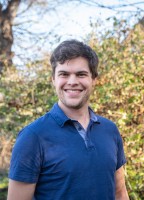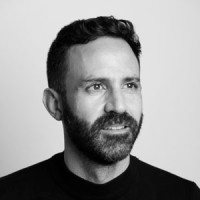Renewable Energy
Terrestrial Biodiversity
Wind Energy
Wildlife & Invasive Species
Post-Doctoral Fellowships
United Kingdom
2024.08.04
How Do Onshore Wind Farms Impact Ecosystems?
The rapid growth of renewable energy infrastructure plays a crucial role in the transition to green economies worldwide. It already offers significant economic and societal benefits in Europe, and particularly in the UK. In the face of increasing anthropogenic climate change and biodiversity loss, energy sources, such as wind power, are also at the forefront of tackling these challenges. However, the rapid growth of renewable energy infrastructure does not come without risks, not least its potential impacts on biodiversity which can involve large, landscape-scale disturbance. Nevertheless, there are still significant knowledge gaps about the ecosystem-wide impacts of renewable energy production and onshore wind farms in particular. The need for work that both promotes and enhances the co-existence of humans, renewable energy infrastructure and biodiversity is thus vital and urgent to ensuring a Net-Zero future.
Dr. Henry Häkkinen’s project at the Zoological Society of London’s Institute of Zoology will address the need to understand potentially positive, negative and neutral impacts of renewable energy production on biodiversity. As there is currently no landscape-level understanding of how ecological functions are affected by onshore wind farms, Dr. Häkkinen will directly explore these potential impacts. The project will focus specifically on how and why ecosystem functions are affected during and after construction, via the use of satellite remote sensing and field-based data of UK wind farm sites. By looking at windfarms across the UK, Dr. Häkkinen will compare different spatial features to identify key factors that increase or decrease landscape sensitivity to wind farm impacts, including ecological, hydrological and geological features. This approach will enable the generation of evidence-based recommendations to reduce the ecosystem-wide impacts of renewable energy infrastructures on biodiversity.
Although environmental impact assessments and mitigation strategies have become common practice, the lack of research on ecosystem structure and functioning, as opposed to species-level impacts, means there is a severe gap in our understanding, and therefore in national and global renewable strategy. It is critical that the global drive to renewable energy does not compromise key ecosystem services, or negatively impact biodiversity. Dr. Häkkinen’s work promises to support ecosystem functions by providing a clear set of recommendations for all policymakers and contacts within the renewable energy industry, backed up with methodology and results.
The outputs of this project will characterize the major areas of impact and identify key aspects of landscapes and ecosystems that make them particularly sensitive to development, leading to actions that can either prevent or mitigate impact before, during and after construction. This multi-scale approach will provide a much-needed overview of the positive, negative and neutral effects of wind farms on ecosystems in the UK and will be used to create an evidence base to inform future planning and mitigation measures on a global scale.

Henry
HÄKKINEN
Institution
Zoological Society of London
Country
United Kingdom
Nationality
English
Related articles
Climate Change
Terrestrial Biodiversity
Agriculture, Crops & Soil Health
Climate Adaptation & Resilience
Nature-based Solutions
AXA Chair
Argentina
2024.12.06
Harnessing the Potential of RNA: Pioneering a Sustainable Path to Climate-Resilient Crops
Federico Ariel's research project addresses this critical threat to global agricultural productivity and offers a potential solution. His focus on... Read more

Federico
ARIEL


